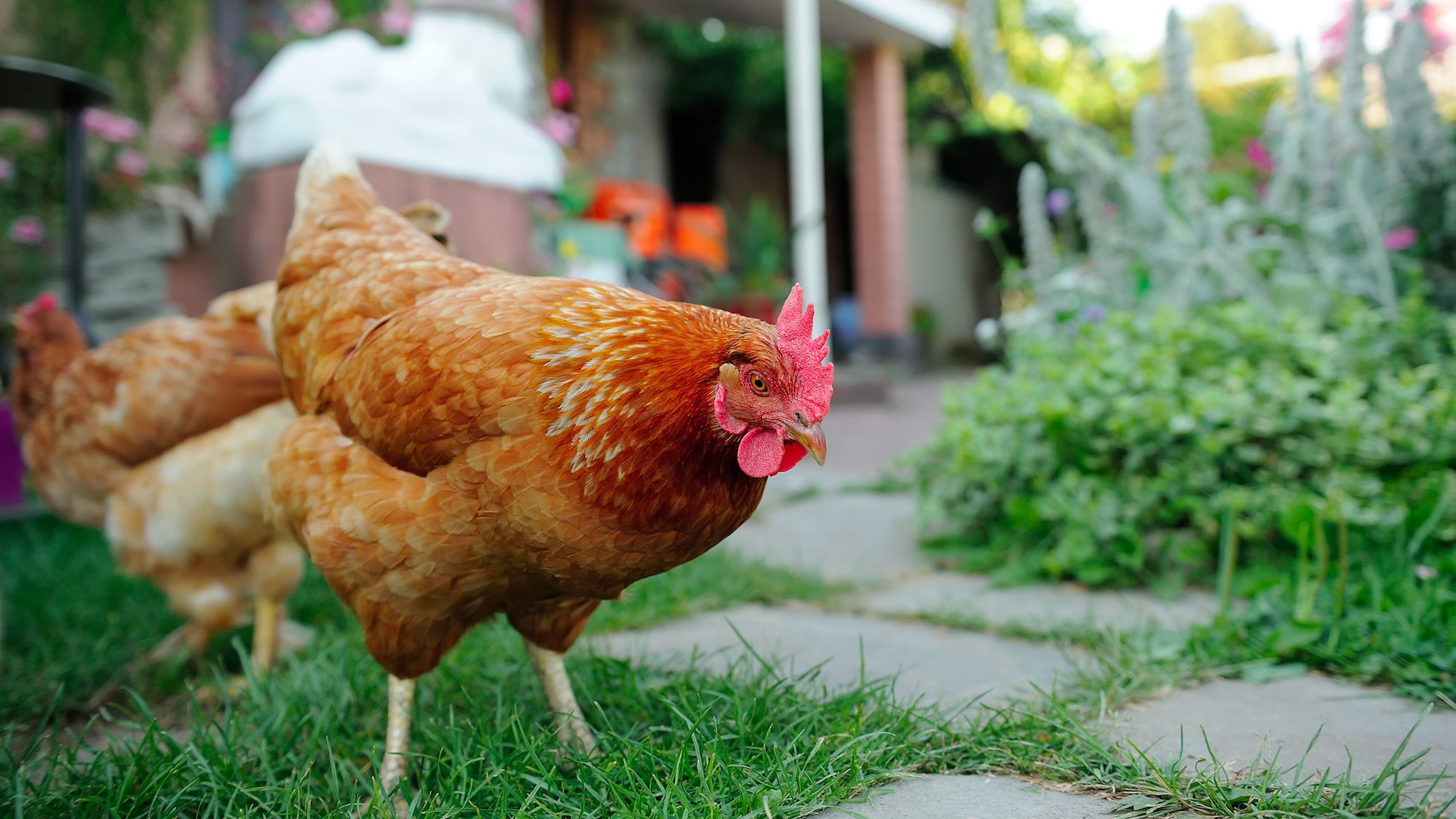
Watcha/Getty Images
Going to the grocery store during a pandemic has felt a bit like playing roulette. More often than not, something you wanted or needed is out of stock—and frequently, those items have been meat and dairy products.
To the rescue: Your own pet chickens! Google searches on raising the backyard birds have skyrocketed since COVID-19 began, as people try to get a handle on the new norm and the best way to provide for their families.
We caught up with a few livestock experts to get all the details on this hatching trend, and how to best raise chickens. Although these feathered friends might not be quite as Instagrammable as your dog, their fresh eggs are a welcome addition to your meals at home.
America’s obsession with backyard chickens
With food shortages and basic necessities flying off the shelves, people are looking for a new way to make sure their families eat well—and for some the solution is livestock.
“Interest in some of my chicken articles has gone up over 500% since the end of February,” says Shelby DeVore, livestock expert and founder of Farminence. “I’ve also had a huge response of people reaching out and looking for advice.”
Raising chickens is something that most Americans can do reasonably, DeVore says. Besides being an easy intro to at-home livestock, chickens are also relatively affordable animals to take care of.
“They don’t cost much and don’t take up much room,” says DeVore. “It’s a great way to become a little more self-sufficient without committing to an all-out homestead or completely self-sufficient lifestyle.”
Have you caught the poultry bug yet? We have. And while raising chickens isn’t exactly quantum physics, there are still a few things to be aware of.
How to raise chickens at home
When it comes to raising chickens, the first thing is to make sure you’re even allowed to have them.
“Always check with landlords, neighbors, and local laws,” says Adam Mcaree, who raises chickens in Portland, OR. “Some cities have a bird-per-resident limit. Some deny the right to have a rooster. Some laws may require the coop to be a certain size and/or distance from the house or property boundaries.”
Once you know what your ZIP code livestock laws are, buying chickens is fairly easy—search for chickens for sale at a hatchery or feed store near you.
Then it’s time to start building a coop. Chicken coops are essential to both keeping your chickens happy (and stress-free) and protecting them against predators like foxes, raccoons, hawks, and even dogs.
“Chickens aren’t smart,” DeVore says. “You’ll have to spend time looking out for their welfare since they won’t always do it, and you can start by making sure they have a secure place to sleep—since sleeping chickens … will be quickly killed.”
Working out all the details of caring for chickens at home might sound complicated, but there are a ton of resources online, including this detailed beginner’s guide to keeping chickens from Murano Chicken Farm.
Pros and cons of raising chickens

Photo by Jordana Nicholson
After all this talk of raising chickens, you’re probably wondering: What’s in it for me? Turns out, quite a bit. Here are a few pros (and cons) from the experts.
Pro: They make your yard better
“Of all the livestock you can raise, chickens are the easiest to care for,” says Elle Meager, homesteader and founder of Outdoor Happens. “They eat nearly anything, so they’re a great way to recycle your kitchen scraps, and they also provide natural bug control for your plants. Chicken manure is also free fertilizer for the garden.”
Bug control? You bet.
“Chickens spend hours each day in search of ticks, grasshoppers, flies, and other small insects,” says DeVore. “This means fewer annoying bugs for you.”
Pro: Fresh eggs are the best
There’s nothing like fresh eggs, especially when grocery stores have limited supply.
“Most eggs that you buy in the grocery store are at least a week old when they’re put on the shelf,” says DeVore. “It’s very possible that eggs bought in the grocery store are 2 weeks old by the time you bring them home.”
Con: Don’t expect eggs right away
Before you start gathering up all your favorite omelette and frittata recipes, keep in mind that you may not have eggs immediately.
“Don’t be surprised if your chickens don’t start laying eggs straight away,” Meager says. “They need a few weeks to settle in and feel comfortable. Any upheaval can cause them to ‘go off the lay’ for a few days. They’ll need a familiar, calm environment to lay well.”
Ditto if you opt for buying chicks instead of chickens, since most chickens won’t begin laying eggs until they’re 4 to 6 months old.
Con: Chickens are work
Raising chickens isn’t as simple as setting up a coop and throwing the birds in. Properly caring for your chickens will take both time and patience for the best results.
“Chickens are a nice addition and relatively low-maintenance compared with other domestic pets, but there is some regular work and cost that shouldn’t be overlooked,” DeVore says. “They can’t take care of themselves—they’ll rely on you for proper care and protection.”
The post Backyard Chickens Are Having a Moment: Should You Cock-a-Doodle-Do It? appeared first on Real Estate News & Insights | realtor.com®.

No comments:
Post a Comment